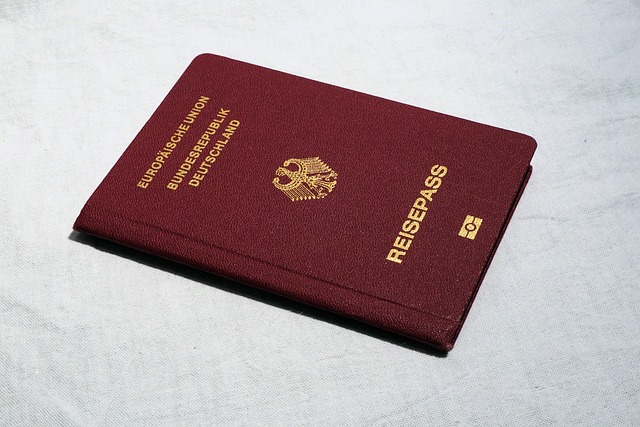Unlock Your Future: A Guide to the Germany EU Blue Card Program in 2025
The Germany EU Blue Card program is gaining attention in 2025 as a pathway for skilled workers to build careers in Europe. This residence permit is designed for non-EU nationals with specialized skills, providing access to employment and long-term residency. This guide explains eligibility requirements, benefits, challenges, and steps to apply for the EU Blue Card in Germany.

What the Germany EU Blue Card Program Means
The Germany EU Blue Card program functions as a work and residence permit specifically designed for highly skilled professionals from non-EU countries. This initiative aims to address Germany’s skilled labor shortage while providing qualified individuals with streamlined access to the German job market. The program operates under European Union directives, ensuring standardized requirements across member states while allowing individual countries to implement specific criteria.
The Blue Card differs significantly from standard work permits by offering greater flexibility and faster pathways to permanent residence. Holders can change employers more easily after initial periods and benefit from simplified family reunification procedures. The program particularly targets professionals in sectors experiencing labor shortages, including information technology, engineering, healthcare, and natural sciences.
Eligibility Requirements in 2025
Current eligibility requirements in 2025 maintain strict educational and salary thresholds while introducing some streamlined application processes. Applicants must possess a recognized university degree or demonstrate equivalent professional qualifications through formal recognition procedures. The degree requirement can be satisfied through German institutions, recognized foreign universities, or comparable qualifications verified by German authorities.
Salary requirements represent a critical component of eligibility assessment. General applicants must secure employment offers with annual gross salaries reaching approximately 58,400 euros, representing two-thirds of the annual contribution assessment ceiling for statutory pension insurance. Professionals in shortage occupations, including natural scientists, mathematicians, engineers, physicians, and IT specialists, benefit from reduced thresholds at approximately 45,552 euros annually.
Language requirements vary depending on professional circumstances and intended duration of stay. While German language proficiency is not mandatory for initial applications in many cases, basic communication skills significantly enhance employment prospects and integration opportunities.
Benefits of the EU Blue Card
The EU Blue Card provides comprehensive advantages that extend beyond basic work authorization. Immediate benefits include the right to work in Germany for the sponsoring employer, with opportunities to change employers after specified periods. Family members, including spouses and unmarried children under 21, can accompany Blue Card holders and typically receive work authorization without additional requirements.
Geographic mobility within the European Union represents another significant advantage. After 18 months of residence in Germany, Blue Card holders can transfer to other EU member states under specific conditions, maintaining their skilled worker status and accumulated residence periods for permanent residence calculations.
The pathway to permanent residence offers accelerated timelines compared to standard residence permits. Blue Card holders can generally apply for permanent residence after 21 months with intermediate German language skills, or after 33 months with basic language proficiency. This timeline represents substantial reduction compared to typical five-year requirements for other permit categories.
Challenges and Considerations
Despite its advantages, the Blue Card program presents several practical challenges that prospective applicants should carefully evaluate. The job market competition remains intense, particularly in popular metropolitan areas like Munich, Frankfurt, and Hamburg. Salary requirements, while reduced for shortage occupations, still represent significant thresholds that may limit opportunities in certain sectors or regions.
Professional qualification recognition can prove time-consuming and complex, especially for applicants from countries with different educational systems. The process may require extensive documentation, official translations, and formal evaluations that can extend application timelines by several months.
Cultural and linguistic adaptation presents ongoing challenges beyond initial application success. While German proficiency is not always required initially, career advancement and full social integration typically depend on developing substantial language skills. Professional networking, workplace customs, and bureaucratic procedures can require significant adjustment periods for international professionals.
| Service Provider | Application Support Services | Estimated Cost Range |
|---|---|---|
| Expatica Immigration Services | Document preparation, application guidance | €800 - €1,500 |
| German Immigration Lawyers | Legal consultation, complex cases | €1,200 - €3,000 |
| IamExpat Services | Complete relocation support | €1,500 - €2,500 |
Prices, rates, or cost estimates mentioned in this article are based on the latest available information but may change over time. Independent research is advised before making financial decisions.
Administrative processing times can vary significantly depending on application volume, consular capacity, and individual case complexity. Standard processing periods range from 6 to 12 weeks, though complex cases involving qualification recognition may require additional time. Economic factors, including currency fluctuations and cost-of-living variations across German regions, can impact the practical value of salary offers and overall financial planning.
The Germany EU Blue Card program continues to represent an attractive opportunity for qualified professionals seeking European career advancement. Success depends on thorough preparation, realistic expectations about challenges, and strategic planning for long-term integration. Understanding both benefits and limitations enables informed decision-making about this significant career and lifestyle transition.




